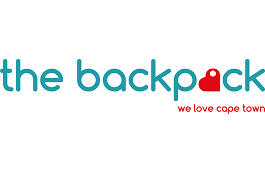We spoke to Cape Town based hostel The Backpack, winner of two categories at the 2015 Global Youth Travel Awards – Green Accommodation Initiative and Best Social Responsibility Initiative. Tony Shina, Co-owner and Co-founder of The Backpack talks to us about the influencers on South African tourism, and how big accommodation brands are affecting the hostel market.
Is youth travel getting older? In other words, are older people travelling in youth-inspired ways? Can you offer a personal story or example?
Yes and no. More school groups are travelling, although we don’t accommodate them in our hostel, we do get many requests for school groups. There are definitely more people travelling than 20 years ago, the average age at The Backpack is 35 and as our hostel has so many room types we attract a variety of travellers spanning different ages and interests. We are not the standard big dorm hostel that would traditionally attract a majority of younger people. We are non-ageist.
We have also seen a huge drop in alcohol sales, replaced instead by a cell phone/tablet addiction with an increase in the conscious traveller who doesn’t want to waste their money on alcohol or experience hangovers – this is seen across all ages!
What will change next year in terms of environmental initiatives/actions in the travel industry? How will consumers be affected or involved?
Perhaps the drought in Africa will have an effect on game/safari holidays. Today’s traveller is quite wealthy and will not be affected by the food shortages that are affecting Africa today.
What attraction or event in your destination will be the strongest draw for young travellers in 2016? 
The very weak currency will push South Africa as an excellent value for money destination for adventure, cultural and food tourism. Also, fewer places to travel in North and Central Africa leaves Southern Africa as the popular destination.
Will the refugee crisis in Europe challenge the definition of cultural exchange and the opportunities for young people to take part in cultural exchange travel?
This is a possibility. Europeans may decide to get involved in projects on their own door steps (charity begins at home). Non- European countries may see an increase in tourism as a result of the terror attacks in Europe.
Do you think that the hostel market is deeply divided with big brands on one side and smaller, independent operations on the other? Will this divide continue to grow and if so, for how long can it continue before something changes? What will/could change it?
It was only a matter of time before big brands entered the hostel market. Like the rest of the retail world, the big brands will dominate and it’s likely that the small hostels will not be able to compete. The hybrid hostel/hotels are going to be the way of the future and the OTA’s are fuelling this “crisis”.
The small owner operated hostels can’t afford the expertise it is going to take to stay in the game. What could swing the game is to encourage the traveller to book directly with the hostel, cut out all these expensive and tech savvy middle agents that continue to push their commissions up. We also need to start networks of like-minded hosteliers. We don’t run hostels any more we run tech companies, we need to share information, multi-cultural staff exchange workshops on how to stay in the game and compete with the big guns.
How do you plan to promote your 2015 Global Youth Travel Award throughout the coming year?
The awards are on the homepage of our site and we are very proud of them. All staff should have the new email signatures that include the award announcement, and our physical glass awards are on our bar counter.

